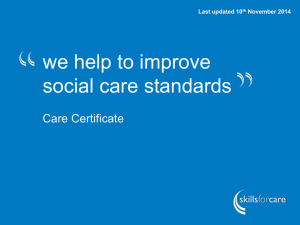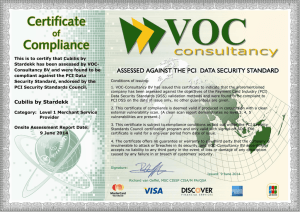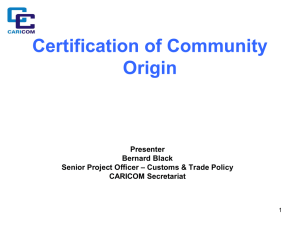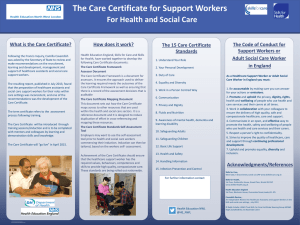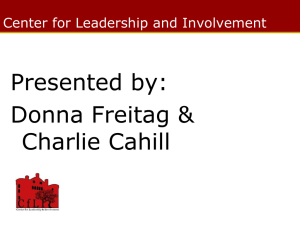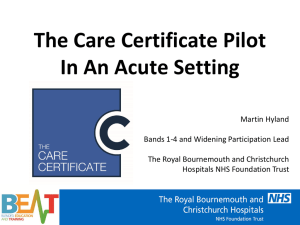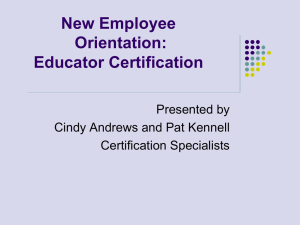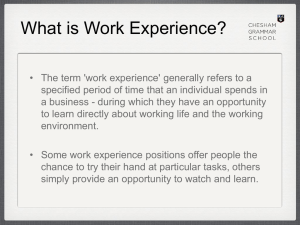The 15 Care Certificate Standards
advertisement
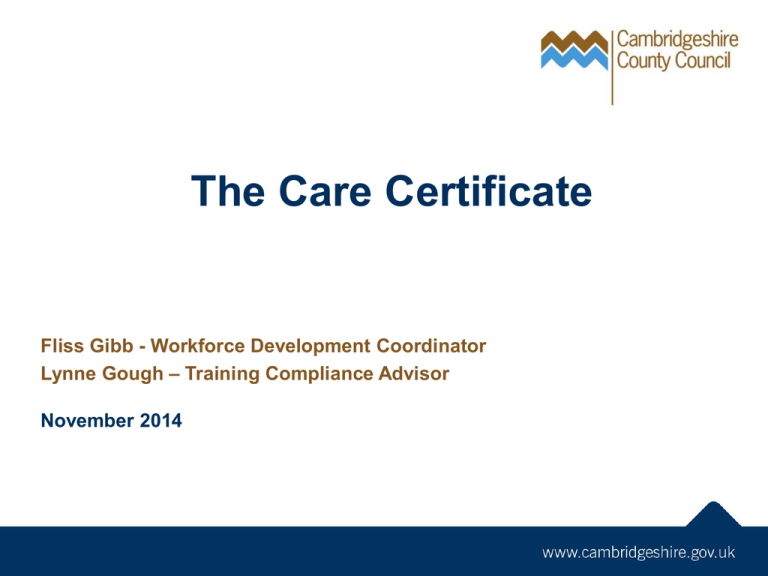
The Care Certificate Fliss Gibb - Workforce Development Coordinator Lynne Gough – Training Compliance Advisor November 2014 Background o Initiated by DoH. Developed by Health Education England in partnership with Skills for Health and Skills for Care. o Launch March 2015 o Francis Inquiry called for “common standards of training and a code of conduct” for Healthcare Support Workers. o Cavendish Review proposed a ‘Certificate of Fundamental Care’ Overview o Replaces, and builds upon, the Common Induction Standards and the National Minimum Training Standards o Forms part of Induction (along with workplace specific induction) which employers have a duty to provide to meet CQC’s essential standards o 15 Standards with explicit Learning Outcomes, Competences and Standards of Behaviour o Enables staff to be ‘ready to practice’ within their specific sector o Non-accredited, but mapped to QCF Overview o Applicable to roles which provide direct support to service users / patients with a specific focus on new staff who are new to care o Designed to be portable between roles and transferrable between employers o 12 weeks is recommended timescale o Care Certificate must be satisfactorily completed and assessed before the worker can practice “without direct / line of sight supervision” Key Differences with CIS o More Standards – 15 in Care Certificate, 8 in CIS o Strengthening of Dementia, Fluids and Nutrition o Addition of Basic Life Support (CPR) o Focus on “delivery of learning” o Assessment of competence as well as knowledge – requires Assessors The 15 Care Certificate Standards 1. 2. 3. 4. 5. 6. 7. 8. 9. 10. 11. 12. 13. 14. 15. Understand your role Your personal development Duty of Care Equality and Diversity Work in a Person Centred Way Communication Privacy and Dignity Fluids and Nutrition Dementia and Cognitive Issues Safeguarding Adults Safeguarding Children Basic Life Support Health and Safety Handling Information Infection Prevention and Control Assessment All employers will need to undertake assessment as prescribed in order for someone to be awarded the Care Certificate Assessment must be carried out: - within a Care Setting - from real work practice - the use of simulation is restricted - with people who use services - face-to-face by an occupationally competent assessor Occupational Competency o Not yet specified, but expected to be in line with the requirements of assessors of the National Occupational Standards o Further guidance will be issued o Cambs. County Council will incorporate assessor requirements into our Training Standards, and are considering offering a qualification for Assessors Quality Assurance Employer is responsible for assuring the quality of the teaching and assessment of the Care Certificate CQC will inspect the outcomes of the Care Certificate as part of its existing inspection methodology Certification should be recorded by the employer and be available for inspection purposes A nationally-designed template for the Certificate will be available Support and Resources o A suite of guidance, documentation and learning materials will be available online for employers to access o There will be a learner workbook available free of charge which employers may choose to use (or use to develop their own version) o CCC will link it’s training programme to the knowledge requirements of the Care Certificate o CCC may offer an Assessor Qualification o Opportunities to discuss issues and share practice as part of CASC-TC, Registered Managers Network and the Training Standards Group Roll out o ‘Soft launch’ in January 2015 – standards, guidance and materials available o Official Launch March 2015 o Expectation that the Care Certificate is being used by employers by the middle of 2015 o CQC will utilise a proportionate approach in the first quarter of 15/16 to allow all employers to gain momentum Small group discussion Consider: How might you approach the development of your Assessors? Who will they be? how will the be utilised? what skills and/or training they will need?

